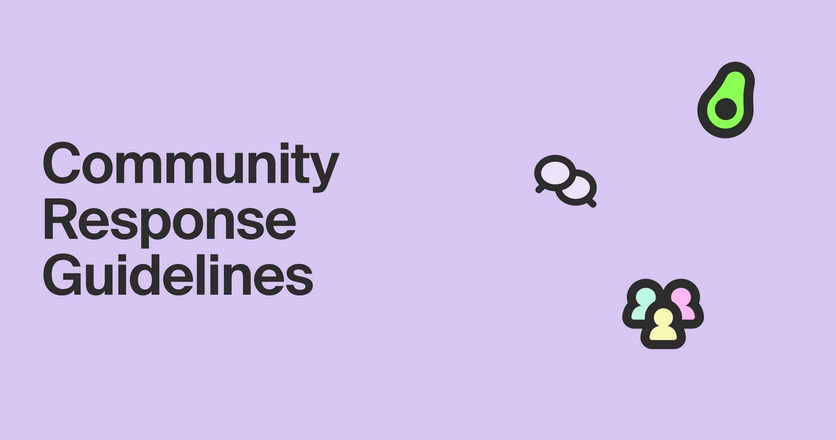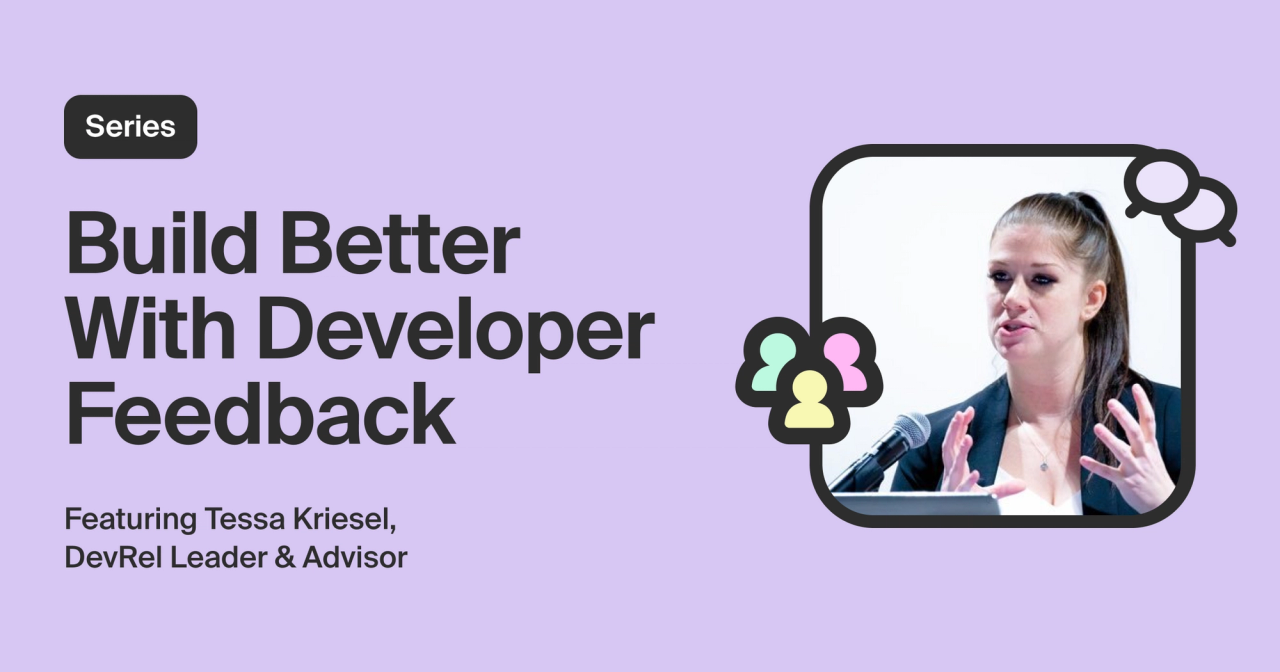4 min read
Obtaining feedback from developers to better your product offering is a must. Not only does it help you build better solutions, but when developers provide you feedback and you listen, they instantly begin to trust you and their affinity for your company grows.
Here are the five pillars of an impactful developer feedback program.
Ensure your decisions are developer-driven
It is imperative that product managers make educated decisions as they grow and evolve their offering. Each and every decision should be guided by your external developer community, both paid and free customers.
Oftentimes we think we know what is best for our users because we focus on it day over day, but the developers who use your product every day know a lot more about your product than you ever will. They will know tips and workarounds used to make exceptions for your product’s fallbacks.
As you embark on building a developer feedback program, be sure that the internal team is prepared and ready to accept and incorporate the feedback you will recieve into making developer-driven decisions.
Host conversations using the right platforms and tools
Ready to start getting feedback from your community? You need to ensure that you’re engaging and communicating with developers in community-based platforms and using tools focused on growing engagement.
What does that mean?
Do not start a giant email chain with a group of developers and ask them individually to share what they think. Drive them towards your feedback or community platforms to complete these conversations. Hopefully after they’ve given their feedback, they will continue to provide value in these spaces.
Encourage group discussion
When you put a group of developers together, they can accomplish a lot more than one can alone. The same goes for feedback.
You will receive the most honest, detailed feedback if you start a conversation with the group together. Creating a forum category (or similar experience that aligns with your community platforms), inviting the entire group, and posing the feedback needs to the group allows for a more conversational feedback loop.
Ever watch a tabs vs spaces conversation among developers? We want this passion. We want to tap into their opinions, understand them, and dive deep for the big and small ideas on how to improve your product.
Approach the conversation selflessly
Developers can see through your trickery. It’s important for developers to know that you truly value their feedback and involvement. If any part of your communications seem selfish, sales or marketing driven, or lack compassion for their needs, you’ll fail. Developers give back when they know the other party is willing to do the same.
See the Building Trust Model to think about how to initiate engagement with a developer.
Keep the dialog going and be thankful
Once you are able to bring a developer into a feedback loop of any kind, it’s important that you continue to engage and amplify that developer. If they have helped you by providing invaluable feedback, you need to return the favor and continue to provide value to them.
Depending on your company size and following, a social shoutout could be incredibly valuable. Plus, it’s an easy task for your company to complete.
My recommendation is to include thank yous in your changelog or release notes. These are content pieces that stick around for a long time and naming those that helped with the release build trust with that developer because you’re giving them credit for their work.
Summary
Your product should be guided by developer-driven decisions. To do that, you need a feedback program using the right tools to solicit feedback where developers can share their opinions. Create a place that allows for continued engagement and ensure credit is given to those who contribute.
Learn more about building your community technology stack to ensure enduring community investment.
This article was originally posted on Devocate, which joined the Common Room family in August 2022. For more developer relations insights and resources, check out the Common Room blog. Learn more about Common Room’s solution for DevRel teams if you're looking for an intelligent community growth platform to educate, empower, and enable your community.
We think you'd like these

Community Response Guidelines for Developer Communities
May 5th, 2022·2min readCommunity
Your First 30 Days in a New DevRel Role
Feb 6th, 2022·6min readCommunity
How DevRel Programs Drive Business Impact
Feb 3rd, 2022·4min readCommunity
Customer data platform (CDP) vs. customer intelligence platform (CIP): differences, similarities, and symbiosis
May 10th, 2024·7min read
